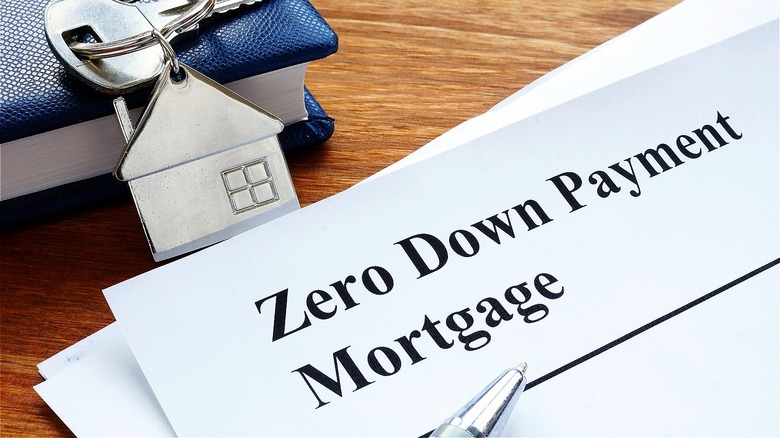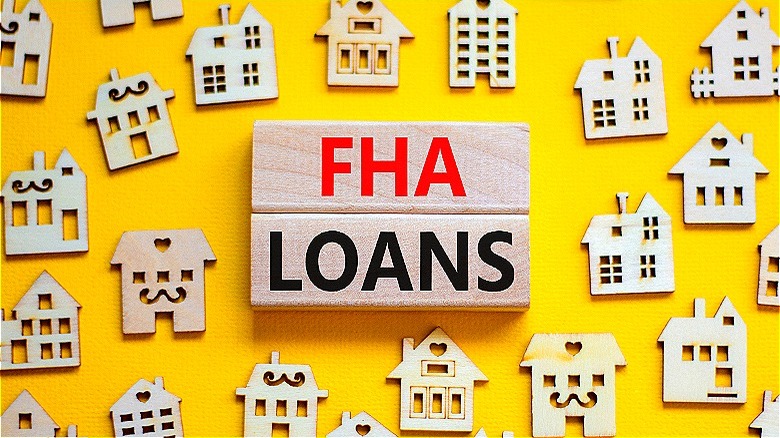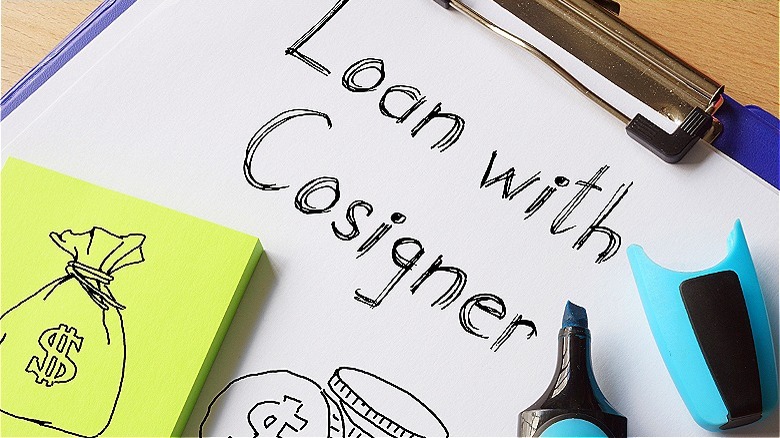Here's How To Buy A House If You're Broke (But Should You?)
Over the past several years, home prices have surged by unprecedented levels. In fact, the median price of an existing home in the United States jumped from about $294,000 in June 2020 to almost $414,000 at the market peak in June 2022, according to Bankrate. That's an eye-popping 40% price increase, but we're willing to wager that your salary probably didn't increase 40% during that same time frame.
To make the affordability situation even worse, mortgage rates have more than doubled from their post-COVID lows of sub-3% to approximately 7% at the end of 2023, ballooning monthly payments. If you already own a home, you're probably ecstatic at its appreciation, but current buyers now face considerable challenges. Not only has income not kept pace with the housing market, but rampant inflation in the cost of living makes it difficult to squirrel away a respectable downpayment.
For many, home ownership is an admirable goal. Buying a home ensures both price and locational stability versus renting, plus you can personalize the property. Additionally, paying a home mortgage instead of rent builds equity — an automatic savings mechanism. Fortunately, alternatives to saving up a huge down payment do exist. In this article, Money Digest will show you how to buy a house with little or no money, assuming you're otherwise financially prepared.
Check if you qualify for a guaranteed mortgage
If you're a past or current member of the United States military, a great benefit available to you is a VA mortgage. The initials "VA" are short for the Department of Veterans Affairs, the government agency that backs these loans. To award members of the military for their service, VA loans typically have low- or no-down payment requirements and carry an interest rate that's lower than conventional mortgages, while simultaneously being easier to qualify for. VA loans are available for both veterans and active service members, including National Guard and Reserve members who meet a minimum service threshold. In certain instances, surviving spouses of military members may also be eligible for a VA mortgage.
Besides VA loans, another good example of a specialty loan program is a USDA loan, which is available to homebuyers living in rural parts of the country. Homebuyers might not think of the U.S. Department of Agriculture as a source for attractive home mortgages, but they should. Low- to middle-income Americans living in rural areas can take advantage of the agency's Single Family Housing Guaranteed Loan Program, which backs mortgages issued by participating lenders.
Note, besides the geographical restrictions, USDA loans also have income limitations. Qualifying households can't make more than 115% of the area's median income, but those who do qualify will enjoy a 0% down payment (i.e., no money down) transaction. Reportedly, more areas than you might expect are classified as "rural" under the USDA's program, including some suburban locales. Full details about loan eligibility can be viewed at the USDA website.
Research low-income financing options
Assuming you're not eligible for a VA or USDA mortgage, there's still hope to snag a home on the cheap through the FHA. Home loans guaranteed by the Federal Housing Administration — a part of the U.S. Department of Housing and Urban Development — have down payment requirements as low as 3.5% of the property's purchase price. Besides a low down payment, FHA loans also have a more lenient credit score requirement than conventional loans, as well as potentially lower closing costs.
At one time, FHA had something of a monopoly on loans for low-income borrowers. That changed, however, in the mid-2010s, when mortgage giants Fannie Mae and Freddie Mac joined the fray with their own low-income programs, called HomeReady and Home Possible, respectively. The required down payment for these two financing programs is even lower than FHA, at just 3%, though certain income restrictions do apply. Homebuyers are also required to attend a homeownership education course as part of the loan process.
Add a cosigner
Homebuyers lacking a significant credit history or those with poor credit might consider adding a cosigner to their mortgage loan in order to succesfully purchase a home. According to CreditKarma, age of credit history accounts for 15% of a credit score. That means newer borrowers — even though they may have good credit habits — are at a disadvantage if their credit history is considered short, which is generally defined as less than two years.
Similarly, homebuyers with a poor credit history will face obstacles during the mortgage approval process. Having a reliable cosigner on the loan, though, will alleviate credit concerns for the lender. That could mean getting approved for a mortgage where a buyer without a cosigner may have been denied, and it could also mean access to a lower interest rate than otherwise possible.
That's because the cosigner's credit history and financial information, like their income and assets, are considered alongside the borrower's when lenders evaluate a new loan application. However, that also means the cosigner is held responsible and may be required to step in if the primary borrower defaults or becomes unable or unwilling to make the monthly payments. Typically, cosigners are comprised of the buyer's friends or family, like parents.
Get the down payment from a family member
As of November 2023, the median home price in the U.S. stands at approximately $387,000 but some parts of the country, like California for example, are much higher. Using that $387,000 figure, a traditional 20% down payment equals more than $77,000 in cash that buyers need to save before purchasing a home. As if that's not daunting enough, closing costs necessary to complete the purchase can add an extra 3% to 6% of the purchase price, on average.
For many Americans, saving nearly $100,000 for a traditional down payment just isn't a realistic scenario — at least in a reasonable number of years. For some, the answer is sourcing the money from a relative, most likely a parent. Generous families may gift the down payment funds to their children, especially if recently married and/or wanting to start a family of their own.
Note that lenders have certain disclosures when it comes to gifting down payments. Conventional lenders will want the contact information of the gift giver (who must be immediate family), as well as the amount and a statement making it clear that repayment isn't expected. The FHA has a similar process, except that the funds can be gifted from a wider variety of sources such as an employer or charity.
Make sure you're financially prepared
To recap, we've established that cash-strapped buyers may be able to pursue homeownership by leveraging loans that are guaranteed by the VA, USDA, or FHA. Those products have down payment requirements as low as zero to 3.5% of the home's purchase price. In a worse case of 3.5%, that's a down payment of about $13,500 based on the current median home price in the U.S. of $387,000. Further, buyers still struggling to save that reduced down payment amount — or buyers who don't qualify for one of the financing programs — might consider borrowing the down payment from a parent or other relative.
However, just because you're able to take advantage of some creative ways to buy a house with no money doesn't mean you necessarily should. In fact, a record number of Americans think it's a bad time to purchase a home with affordability near all-time lows. This is compounded by the fact that if you're unable to save for a significant down payment — perhaps not a full 20%, but not 0% either — then you might not be in a good financial position to buy a home.
Besides the monthly mortgage payment, there are many other expenses to owning a home. Some examples include insurance, homeowners association fees, and emergency repairs. Before tackling the responsibility of homeownership, it's a good idea to be relatively debt-free in other areas and have a fully funded emergency fund with three to six months' worth of living expenses saved for when something inevitably requires fixing.





